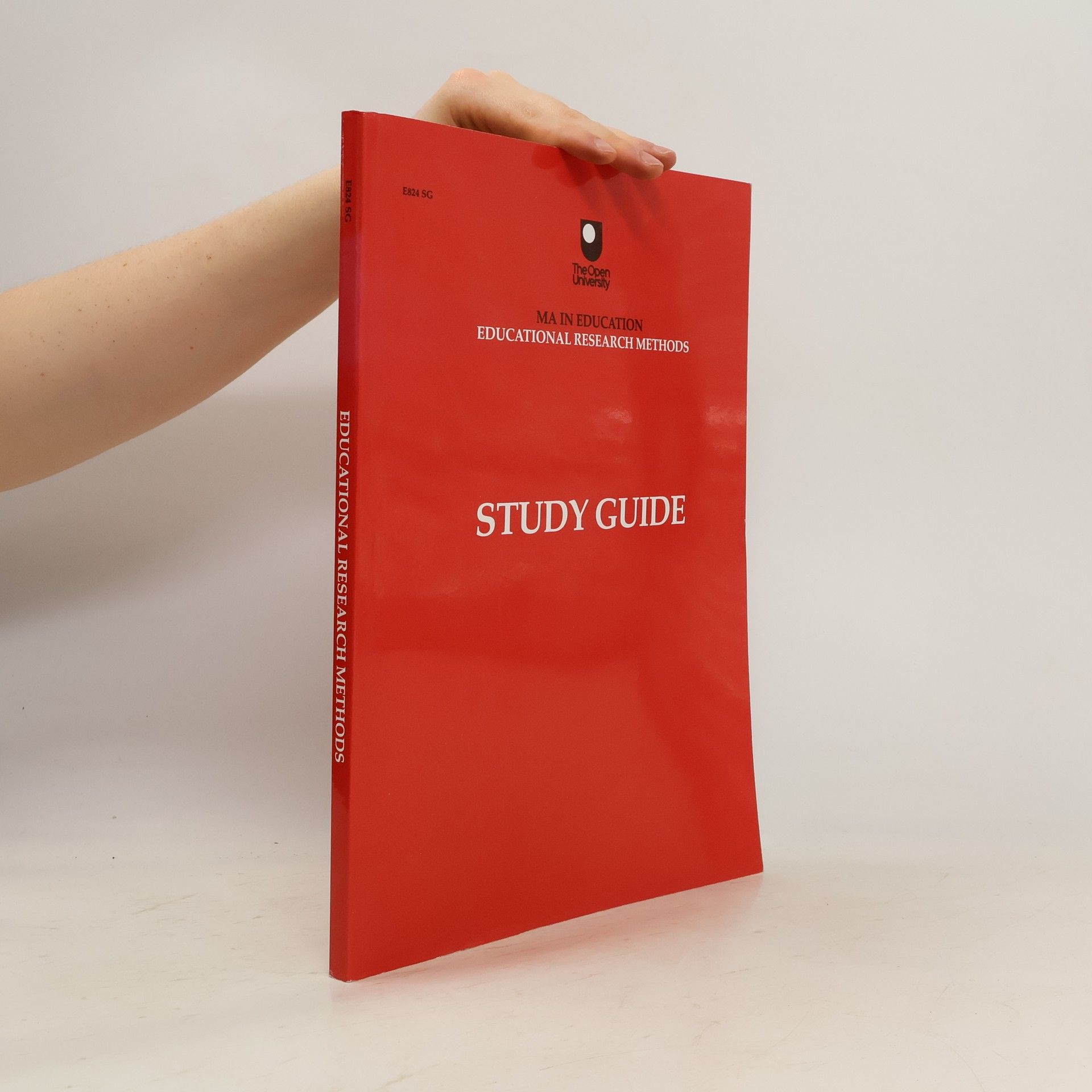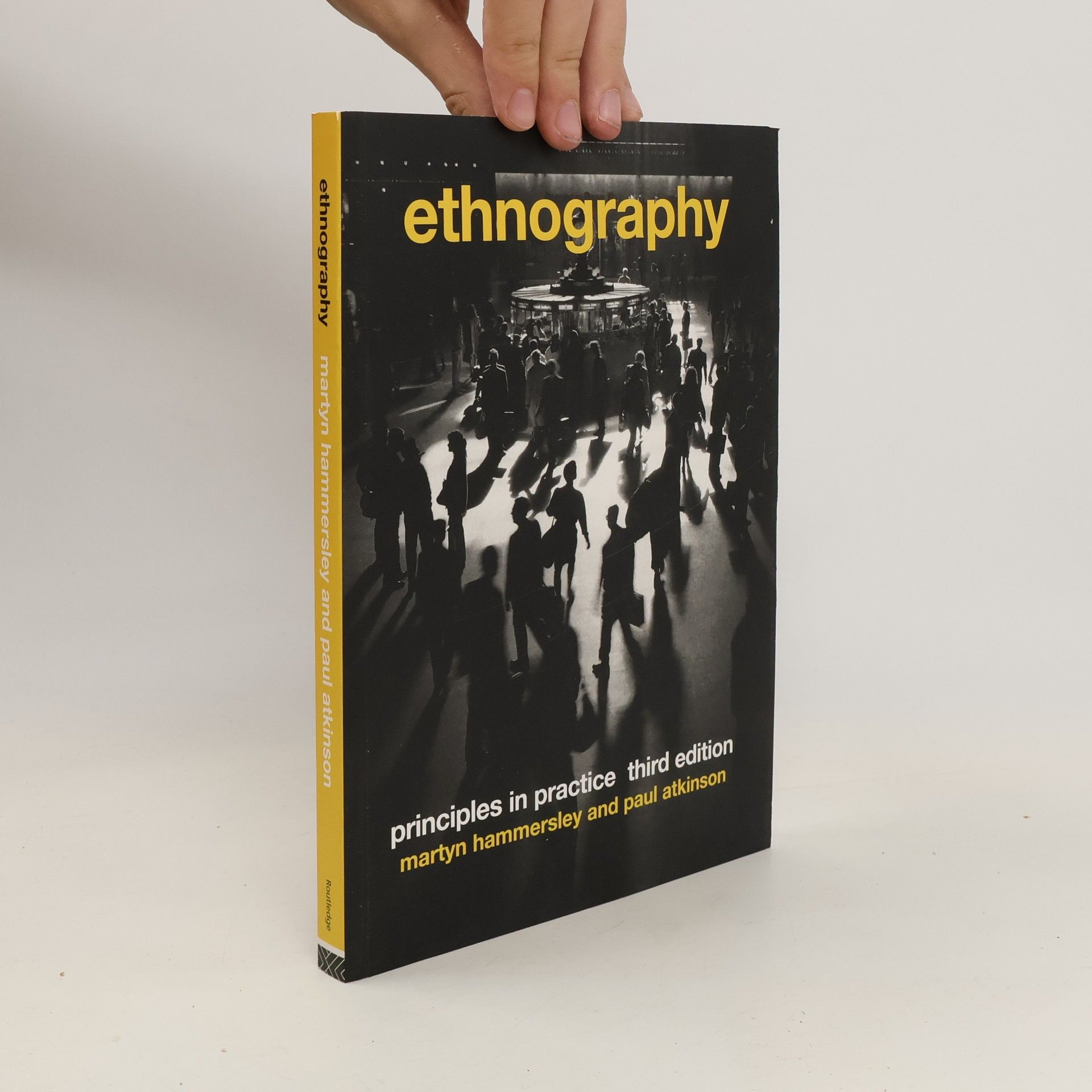Thoroughly updated, this accessible introduction to the methods of ethnographic fieldwork reconsiders the status of ethnography and places it quite explicitly in a general methodological context.
Martyn Hammersley Boeken






Now in its third edition, this leading introduction to ethnography has been thoroughly updated and substantially rewritten. It offers a systematic introduction to ethnographic principles and practice. New material covers the use of visual and virtual research methods, hypermedia software and the issue of ethical regulation. There is also a new prologue and epilogue. The authors argue that ethnography is best understood as a reflexive process. What this means is that we must recognize that social research is part of the world that it studies. From an outline of the principle of reflexivity the authors go on to discuss and exemplify main features of ethnographic work, including: the selection and sampling of cases the problems of access observation and interviewing recording and filing data the process of data analysis and writing research reports. Throughout, the discussion draws on a wide range of illustrative material from classic and more recent studies within a global context. The new edition of this popular textbook will be an indispensable resource for students and researchers utilizing social research methods in the social sciences and cultural studies.
MA in Education: Educational Research Methods Study Guide
- 147bladzijden
- 6 uur lezen
a very good book but it has been previously read. available from UK seller , same day/next day dispatch. The fella used it for his MA withthe OU, he says it was brill
A Dictionary of Social Research Methodology
- 158bladzijden
- 6 uur lezen
The book serves as a comprehensive guide to various methodological concepts, blending philosophical and technical perspectives. It covers a diverse array of topics, including constructionism, critical realism, regression analysis, grounded theory, odds ratios, and triangulation, making it a valuable resource for understanding different research methodologies.
Routledge Revivals
The Dilemma of Qualitative Method (1989): Herbert Blumer and the Chicago Tradition
- 284bladzijden
- 10 uur lezen
Exploring the historical debate between qualitative and quantitative research methods, this guide delves into the evolution of social research approaches since the nineteenth century. It highlights the tension between the methodologies of history and natural science, providing valuable insights for researchers navigating these differing perspectives. Originally published in 1989, it remains a relevant resource for understanding the complexities of qualitative methods in contemporary social research.
Key sociological terms like 'power', 'ideology', and 'culture' often suffer from ambiguous meanings, complicating the interpretation of sociological findings. This book delves into these central concepts, exploring their historical context and analytical implications. Rather than proposing a new framework, it aims to clarify and refine the meanings associated with these terms, enhancing their utility in sociological analysis. The discussions are relevant not only to sociologists but also to anyone interested in the complexities of social issues.
Routledge Revivals
What's Wrong With Ethnography? (1992): Methodological Explorations
- 244bladzijden
- 9 uur lezen
Focusing on the rationale and uniqueness of ethnographic research, this book critically examines its role in sociology, education, and related disciplines. It challenges conventional perspectives, offering insights into the methodology and its implications for understanding social phenomena. By revisiting ethnography's foundational principles, it encourages readers to reflect on its value and application in contemporary research contexts.
Focusing on social research methodology, this guide clarifies key terms and issues while exploring their conventional meanings and contentious nature. It aims to provide coherent interpretations that enhance understanding of the fundamental concepts in social science, making it a valuable resource for researchers navigating complex methodological discussions.
The exploration of the term 'culture' reveals its diverse meanings and the complexities that arise from them. The book delves into the nuances of cultural definitions, highlighting the challenges they present. It also emphasizes the importance of values in conducting cultural analysis, offering a critical perspective on how these interpretations shape our understanding of culture in both popular and academic contexts.
The Radicalism of Ethnomethodology
- 208bladzijden
- 8 uur lezen
This book offers a well-informed and timely appraisal of the rationale for ethnomethodology and conversation analysis. It examines some of the influences that have shaped work of this kind, and its relationship to mainstream social science. -- .